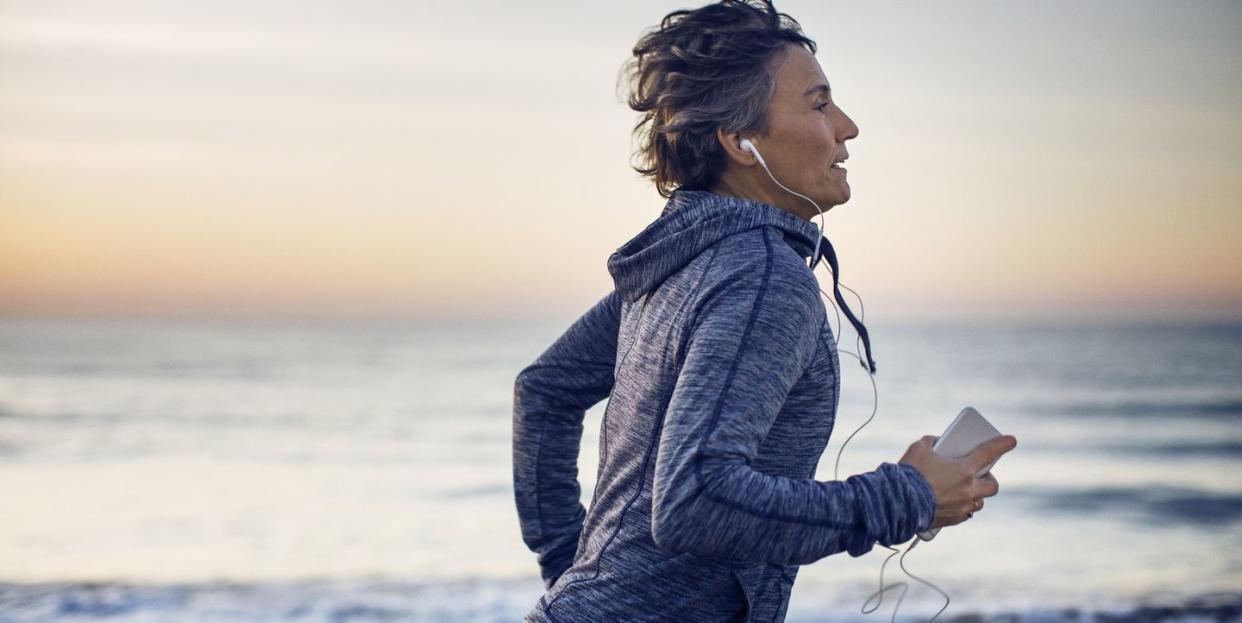Want the Cardio Fitness of Someone Decades Younger? Here’s How Much You Need to Run

By now, you’re probably aware of the many health benefits of running. It boosts your metabolism, keeps your muscles, bones, and joints strong, and improves your memory, just to name a few things.
But new research has added one more: Logging miles on a regular basis throughout your life may help your body stay decades younger as you age, according to a recent study in the Journal of Applied Physiology.
Researchers at Ball State University compared the VO2 maxes and muscular fitness of 28 men and women in their 70s who had either ran, cycled, swam, or did some other kind of aerobic activity for the last 50 years-averaging five days a week for a total of about seven hours-with two other groups: men and women of the same generation who hadn’t exercised much during their lives and men and women in their 20s who are currently active.
Their hypothesis was that the young, active participants would have better cardiovascular and muscle health than either of the other two groups. However, the researchers didn’t find that to be true.
As it turned out, the older participants who have been working out their whole lives had muscle composition similar to that of the younger participants in the study-and both groups were far better than the older, non-active participants.
According to the authors, lifelong exercise “preserves skeletal muscle capillarization [blood vessels] and aerobic enzymes [which break down glycogen], regardless of intensity.” That means better muscle function, allowing you to run harder and longer for years to come.
What’s more, the lifelong exercisers enjoyed a V02 max boost, too. The woman in the group had VO2 maxes similar to people 15 years younger than them, and the men in the group had VO2 maxes similar to those 35 years younger (More research needs to be done to determine why the VO2 max benefits are different in magnitude for men and women).
The intensity of exercise didn’t matter for the cardio capacity boost or the muscle health benefit.
“‘Exercise wins’ is the take-home message,” Scott Trappe, Ph.D., director of Ball State’s Human Performance Laboratory and lead author of the study, told Runner’s World. “We saw that people who exercise regularly year after year have better overall health. These 75-year-olds-men and women-have similar cardiovascular health to a 40- to 45-year-old.”
[Run faster, stronger, and longer with this 360-degree training program.]
Aerobic exercise can also maintain a reserve of good overall health, cutting your risk of early death, according to the study.
Further research is needed to know if running and other forms of aerobic activity would translate to other aspects of muscle health, like mass or structure. Regardless, getting your miles in each week will keep your body younger and fitter.
('You Might Also Like',)

